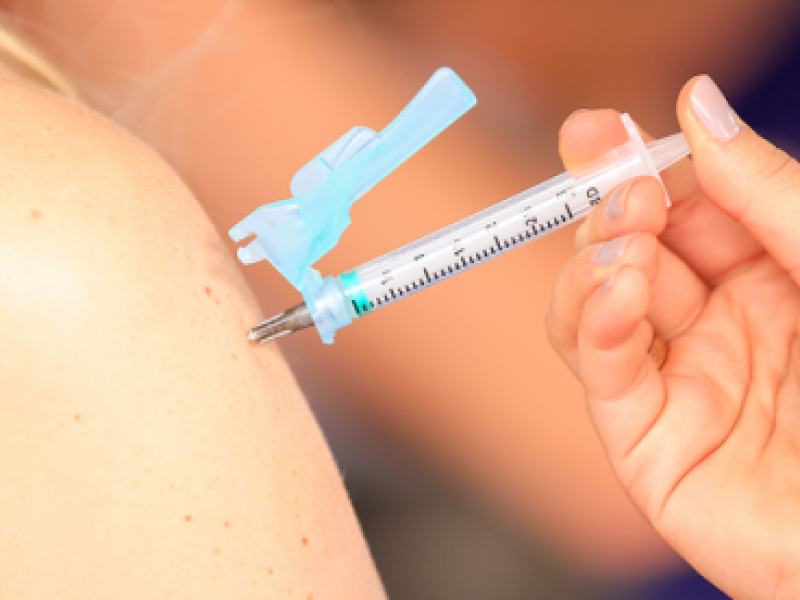06 November 2022 – 02:00
In addition to the checks that are done during prenatal care, there are also several vaccinations that a woman should receive. These actions are aimed at strengthening the immune system of a pregnant woman and protecting the health of the baby. With immunization, the woman’s antibodies are transferred to the baby through the placenta, and after birth, through breastfeeding.
The Pregnancy Book, available on the Unified Health System (SUS), provides information on vaccination during pregnancy, quick tests and exams to spot changes, needed care, guidance on childbirth, pregnant women’s rights, advice, and prenatal care for the father/partner, among other important references. .
Among the vaccines prescribed to pregnant women available at SUS are:
Adult Dual Vaccine (DT)
Protects pregnant women and children from tetanus and diphtheria.
Previously Unvaccinated Pregnant Women: Give 3 (three) doses of the tetanus-diphtheria toxoid vaccine 60 days apart. Take two (two) doses of dTpa at any time of pregnancy and one (one) dose of dTpa, from the 20th week of pregnancy;
Pregnant woman vaccinated with one (one) dose of dT: Give one (one) dose of dTpa at any time of pregnancy and one (one) dose of dTpa from the 20th week of gestation with 60 days intervals between doses, at least 30 days apart
Vaccination of a pregnant woman with two doses (two doses) of dTpa: give a single (one) dose of dTpa from the 20th week of pregnancy;
Immunization of a pregnant woman with three (three) doses of dTpa: One (one) dose of dTpa given from the 20th week of pregnancy.
Even with a complete regimen (three doses of dT or dTpa) and/or a booster dose with dT or dTpa, a pregnant woman should always receive one (one) dose of dTpa in each pregnancy. Neonatal tetanus has a high mortality rate due to contamination of the umbilical cord during childbirth. Diphtheria can cause respiratory obstruction, with a high mortality rate in newborns.
dTpa . Vaccine
It is recommended for use in all pregnancies, because in addition to protecting the pregnant woman and preventing her from transmitting Bordetella pertussis (pertussis) to the newborn, it allows the transfer of maternal antibodies to the fetus, protecting it in the first months of pregnancy. his life, so he can be immunized with the pentavalent vaccine.
The dTpa vaccine should be administered from the 20th week of pregnancy and in each pregnancy. For those who missed the opportunity to get vaccinated during pregnancy, it is important to give a dose of dTpa in the puerperium, as soon as possible.
Hepatitis B Vaccine
For pregnant women of any gestational age, it is important to administer 3 doses (0, 1, 6 months) of the hepatitis B vaccine, taking into account the previous vaccination history. If it is not possible to complete the vaccination schedule during pregnancy, the woman must complete it after childbirth in time.
If a break occurs after the first dose, the second dose should be given as soon as possible and the third dose should be scheduled for 6 months after the first dose, keeping an interval of at least 8 weeks between the second and third dose.
The final dose must be given to the vaccination schedule at least 8 weeks after the second dose and at least 16 weeks after the first dose for the schedule to be considered valid. The minimum interval between the first and second dose should be 4 weeks.
Hepatitis B is a disease caused by a virus that can be transmitted from a woman to the fetus during pregnancy, at the time of delivery or even during breastfeeding, if the child swallows small amounts of blood, in cases of cracks in the mother. nipples; Throughout pregnancy, this infection increases the risk of premature birth.
Important: Hepatitis B is not a contraindication to breastfeeding. If cracks occur in the nipple, it is recommended to stop feeding from the affected breast until the lesions improve. A woman can offer the other breast and manually extract the affected breast to maintain milk production.
Influenza (flu) vaccine
The influenza vaccine is recommended at any gestational age for all pregnant women and women (up to 42 days after childbirth) during the annual vaccination campaign.
Pregnant women are at risk of complications from influenza virus infection. The vaccine is recommended in the months of the virus season, even in the first trimester of pregnancy. During pregnancy, the chances of serious symptoms and complications are higher, resulting in a higher rate of hospitalization.
Covid-19 Vaccine
It protects women from the virus that causes Covid-19. This vaccine is recommended at any gestational age for all pregnant women and postpartum women (up to 42 days after giving birth).
All mentioned vaccines are available free of charge in basic health care units.
for every Ministry of Health

“Wannabe internet buff. Future teen idol. Hardcore zombie guru. Gamer. Avid creator. Entrepreneur. Bacon ninja.”

